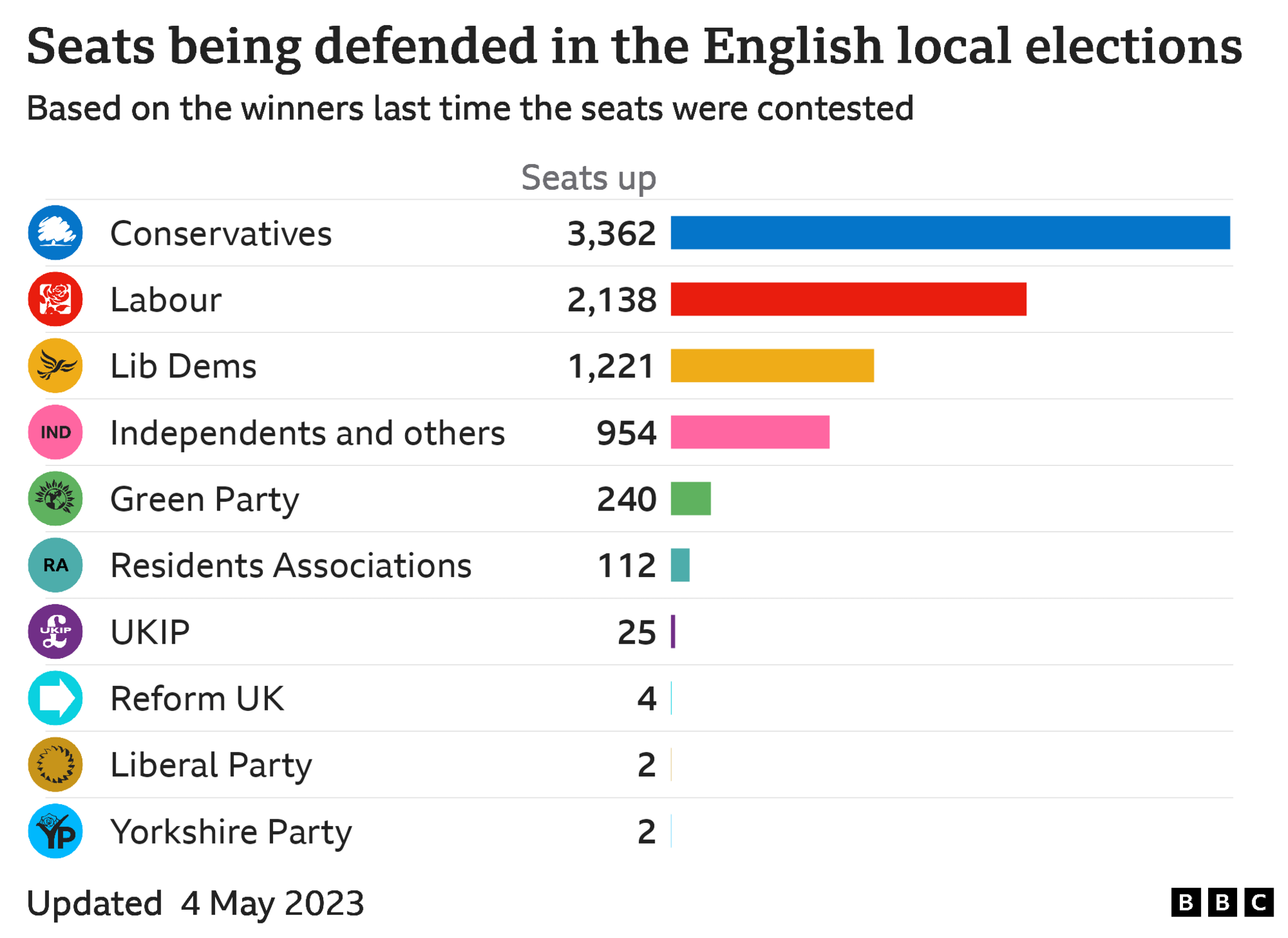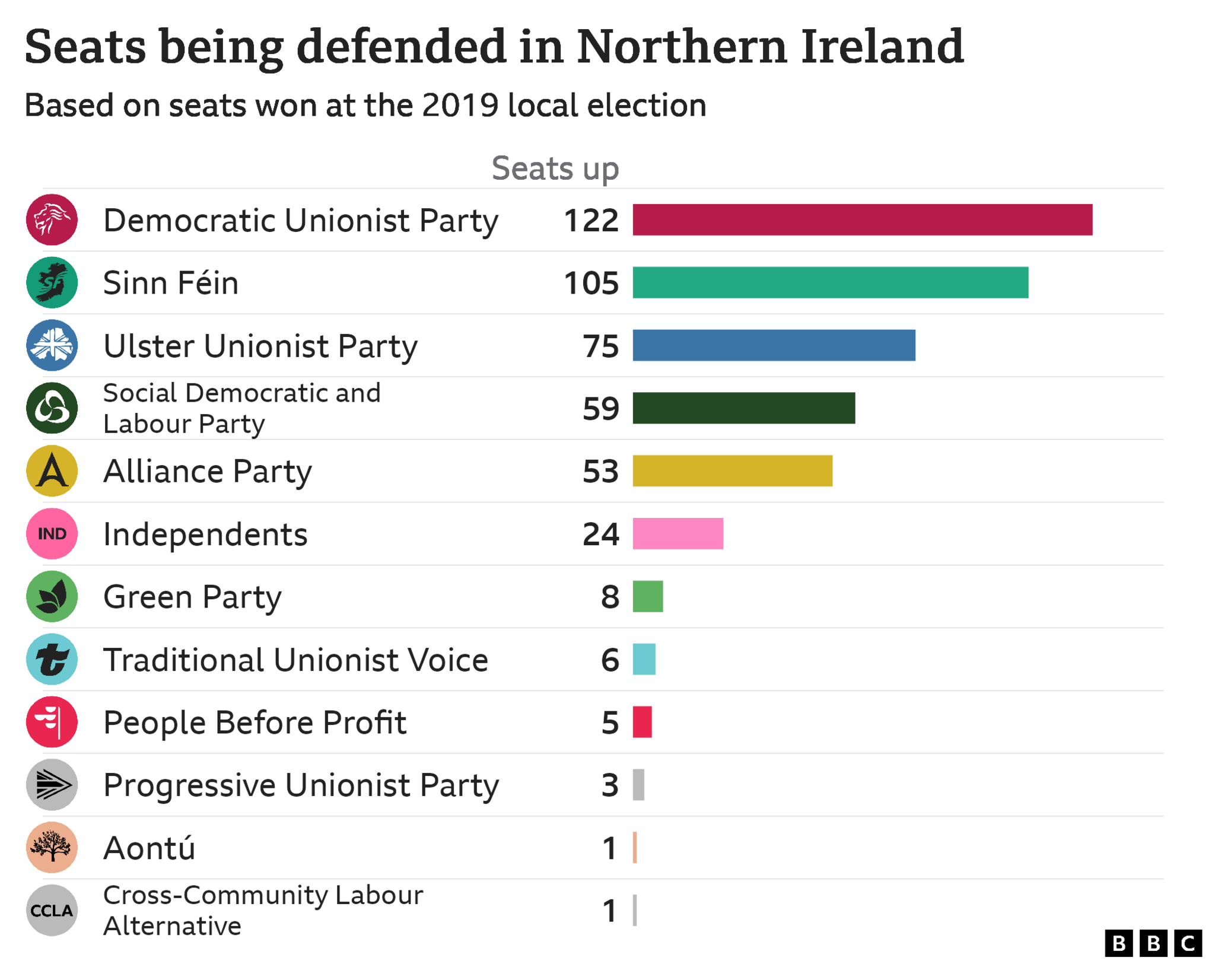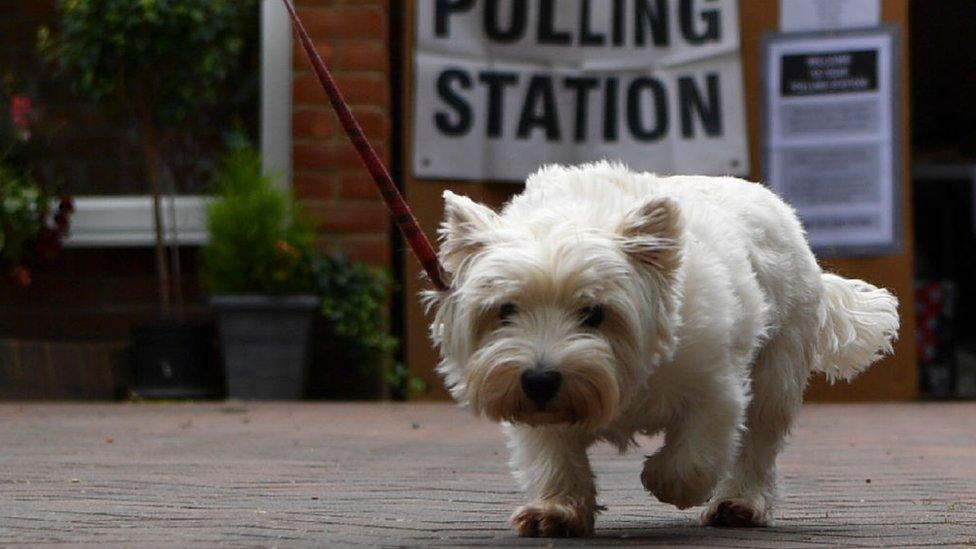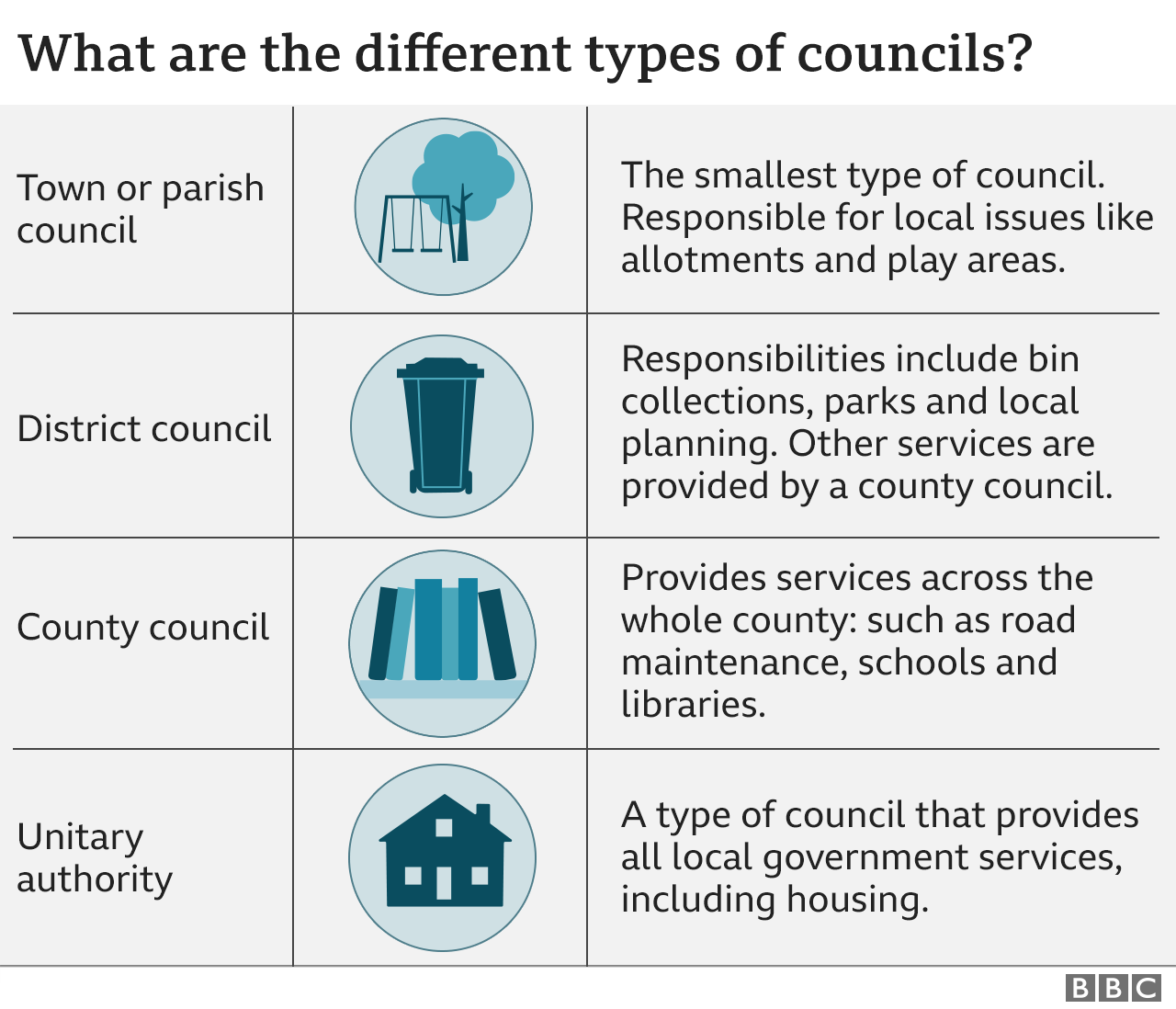Local elections 2023: When are they and who can vote?
- Published

Voters in some parts of England and Northern Ireland will choose new councillors in May.
The deadlines for registering to vote in England and Northern Ireland have now passed.
Where and when are elections taking place?
On 4 May, more than 8,000 seats will be contested at 230 councils across England.
Mayoral elections are also taking place in Bedford, Leicester, Mansfield and Middlesbrough.
In Northern Ireland, 11 council elections are being held on 18 May.
There are no elections in Scotland or Wales.
To see if there is an election in your area, who is standing and where you can vote, use our lookup, made in collaboration with the Electoral Commission.

How can I vote?
in person at your polling station
by post
by nominating a proxy to vote on your behalf
You can find your polling station here, external.
Voters (and proxies) must be, external:
aged 18 or over
registered at an address in the area where they want to vote
a British citizen, an Irish or EU citizen or eligible Commonwealth citizen
not legally excluded from voting
Rules vary so voters should read their ballot paper carefully.
Voters usually have one vote for each available seat in an election area (known as a ward or division). Large wards may have several seats.
Whoever receives the most votes wins.
Northern Ireland uses the single transferable vote (STV) system - where voters rank candidates in order of preference.

Can I still register to vote?
No. The deadlines to register to vote in person, by proxy or by post in England or Northern Ireland have passed.
If you missed the deadline to nominate a proxy but then find you can't vote in person, you can apply for an emergency proxy vote, external before 17:00 on polling day.

Will I need to bring ID to vote?
From 4 May 2023, voters in England must show photo ID to vote in person. You do not need to bring your poll card.
There are 22 forms of valid ID including:
passports
driving licences
Older or Disabled Person's bus passes
Oyster 60+ cards
You can use out-of-date ID as long as you look the same.
Those without the right ID were encouraged to sign up for a free Voter Authority Certificate, external.
The deadline to apply in time to vote in the 4 May elections has passed. Just over 85,000 people asked for one - about 4% of the estimated two million people without valid ID.
Voter ID has been required in Northern Ireland since 2003. The deadline to apply for the NI Electoral Identity Card, external is 5 May.
Watch: Ione Wells explains the new rules for voting in England, in a minute
Can I bring my pet or my children?
Animals - apart from assistance dogs - are not usually allowed in polling stations.
However, other dogs can be admitted at the discretion of the local authority.

Voters are encouraged to bring children to polling stations to educate them about democracy - but they must not mark the ballot paper.
What do local councils do?
Local councils are responsible for many public services, including:
providing care for the elderly and disabled
schools
fixing potholes on some roads
collecting rubbish
In Northern Ireland councils have fewer responsibilities. They do not run education, road-building or housing, but do collect taxes and maintain some local services.

When will the results be known?
Results from more than 60 English councils are expected overnight, with the rest announced throughout the day on Friday 5 May.
In Northern Ireland votes are not counted overnight so results will start coming in on 19 May.